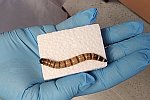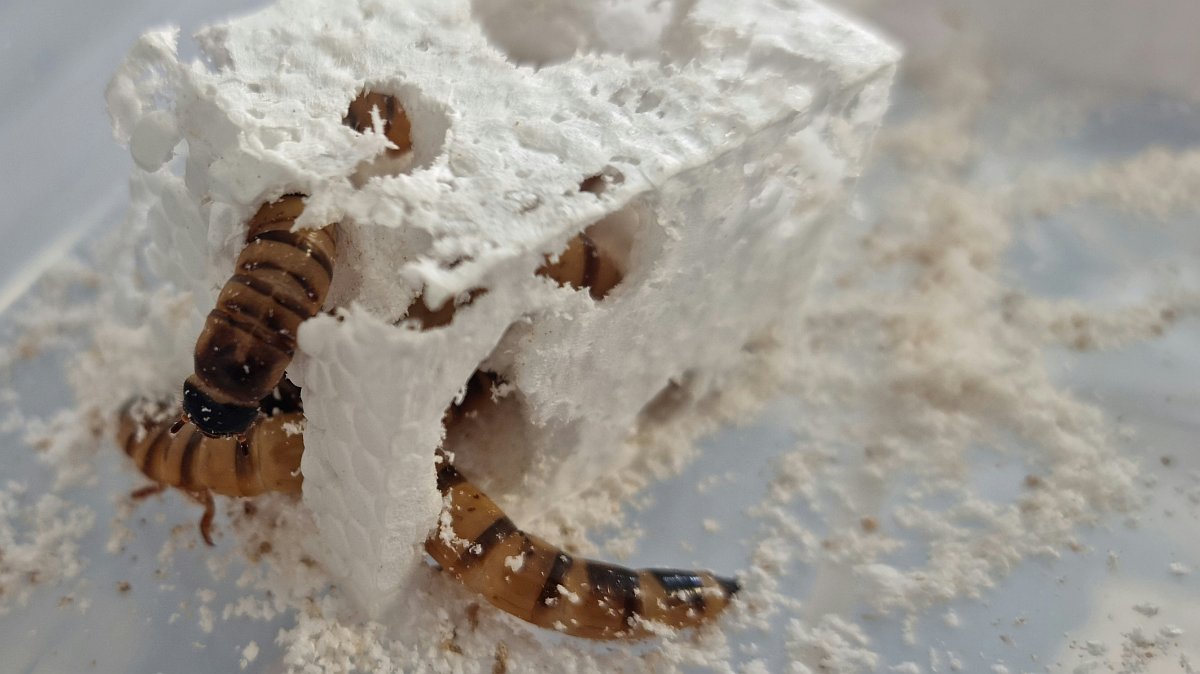|
Superworms can survive on a diet of solely polystyrene, and can act like mini recycling plants, shredding the polystyrene with their mouths and then feeding it to the bacteria in their gut. |
|
Microbial plastic degradation can help to reduce the large amount of plastic waste produced each year. We use mainly culture independent methods, such as metagenomics, to identify microbes that have the potential to degrade polystyrene and to investigate their enzymes and pathways. We recently published the first metagenomic analysis of an insect gut microbiome on a polystyrene diet. Our team identified bacteria with polystyrene- and styrene-degrading abilities, and inferred enzymes and pathways involved in these reactions. Our results contributed towards understanding microbial polystyrene degradation and has provided a solid base for future investigations into microbial degradation and upcycling of plastic waste. Currently, we are further exploring enzymes in the superworm microbiome with the ability to degrade polystyrene and styrene. Our goal is to experimentally verify the function of these enzymes, followed by detailed protein characterisations. The long-term goal is to improve and engineer enzymes to degrade plastic waste in recycling plants, by implementing a workflow consisting of mechanical shredding, followed by enzymatic biodegradation.
Superworms, the larvae of the darkling beetle Zophobas morio, are devouring a block of expanded polystyrene ("Styrofoam"). |



